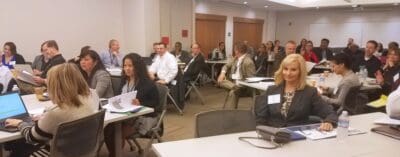
Building the California Healthcare Workforce: An Apprenticeship Working Session
April 17, 2020
At a Glance
This October 2018 event explored how the apprenticeship model could be leveraged and customized to build a strong healthcare workforce in California.
By 2026, the US Bureau of Labor Statistics projects that the healthcare and social assistance sector will add nearly 4 million jobs—about one-third of all new jobs in the country.
Healthcare employers across ambulatory settings, hospitals, and nursing or residential care facilities are increasingly finding it difficult to fill positions at all levels through traditional means. Apprenticeship offers a talent solution to healthcare employers.
The apprenticeship model has long been synonymous with the building trades, but other sectors are increasingly embracing it to meet their current and future workforce needs. The healthcare sector has always valued work-based learning and is now poised to take it to the next level by customizing apprenticeship’s earn-and-learn model to build its workforce.
Engaging more healthcare employers to provide real-world work experiences to students and workers will strengthen the healthcare workforce and pipeline in order to meet Americans’ increasing health needs.
On Tuesday, October 30, JFF’s Center for Apprenticeship & Work-Based Learning partnered with the East Bay Health Workforce Partnership, California Division of Apprenticeship Standards (DAS), and the California Labor and Workforce Development Agency (LWDA) to host a working session on the challenges and workable solutions to utilizing the apprenticeship model to meet California’s healthcare workforce needs
Event participants explored the application and expansion of registered apprenticeship, pre-apprenticeship, and related models (such as enhanced on-the-job training). The working session:
- Convened a targeted group of healthcare employers and practitioners with apprenticeship experts;
- Provided information and resources to help participants develop, implement, and expand apprenticeship programs in California; and
- Featured senior healthcare leaders who discussed why and how apprenticeship has been effective for them and key steps for replicating their efforts.
Setting the Stage: Apprenticeship Opportunities in Healthcare
Presentation Deck
Eric Seleznow provided a national overview of high-quality work-based learning (WBL) and apprenticeships by detailing out the different WBL and apprenticeship models, their value in building a strong healthcare workforce, and their key components, partners, and roles. John Dunn explained how the strategic work, anticipated challenges, and recommendations from the April 2018 Workforce Excellence and Sustainability for Healthcare Symposium were integrated into this event.
- John Dunn, Assistant Secretary for Apprenticeship and Worker Training, California Labor and Workforce Development Agency
- Eric Seleznow, Senior Advisor, JFF
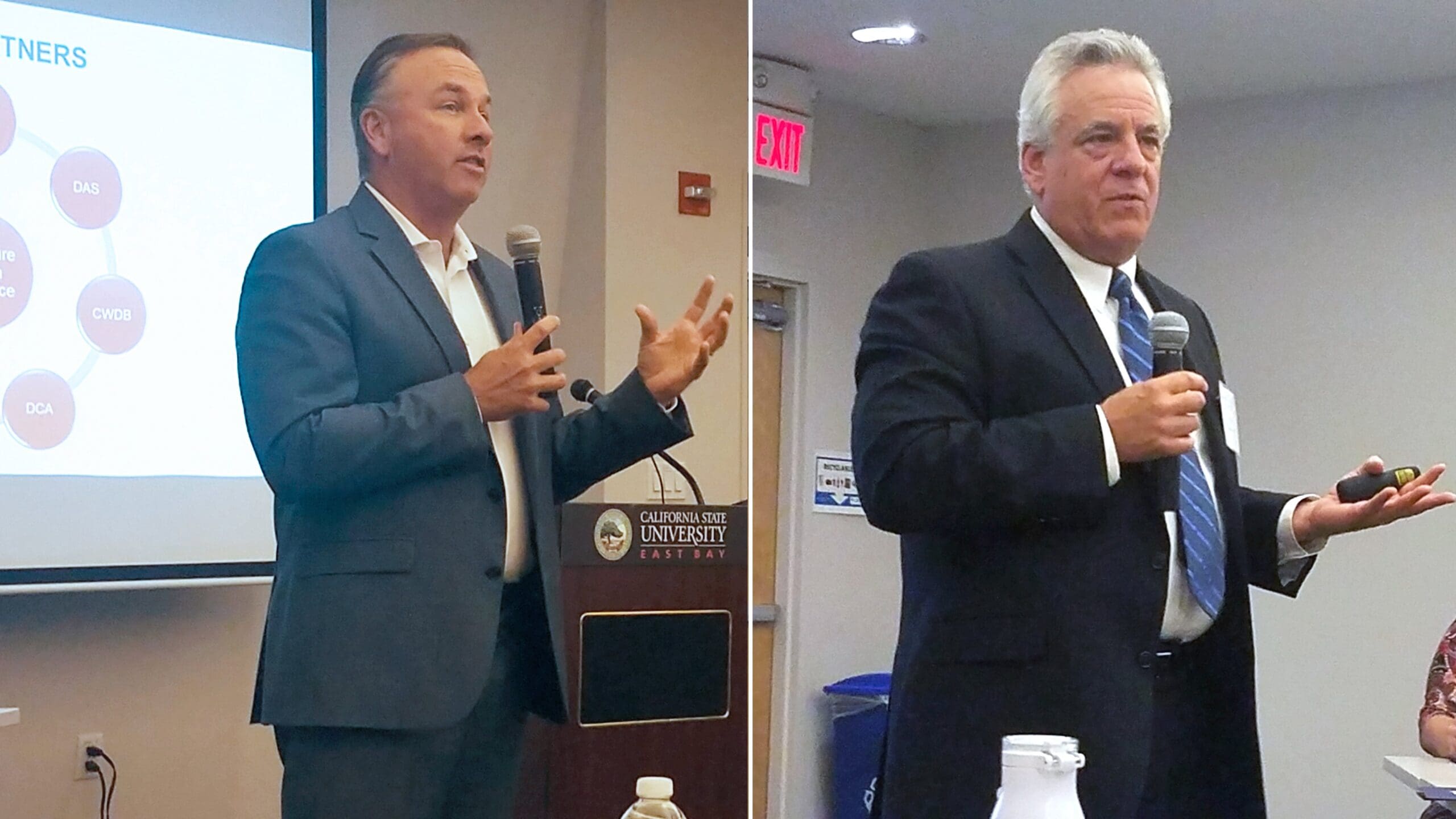
Voices of Industry
Presentation Deck
A panel of healthcare employers explored how they are driving apprenticeship efforts in their states, why they turned to this workforce solution, and their successes and lessons learned.
- Brittany Brown, Manager of Recruitment, Renown Health
- Sarah Currier, Director, Workforce Development, Dartmouth-Hitchcock, New Hampshire State Workforce Innovation Board
- Larissa Estes, Manager, Community Partnerships, Department of Community Health and Engagement, UCSF Benioff Children’s Hospital Oakland
- Moderator: Eric Seleznow, Senior Advisor, JFF
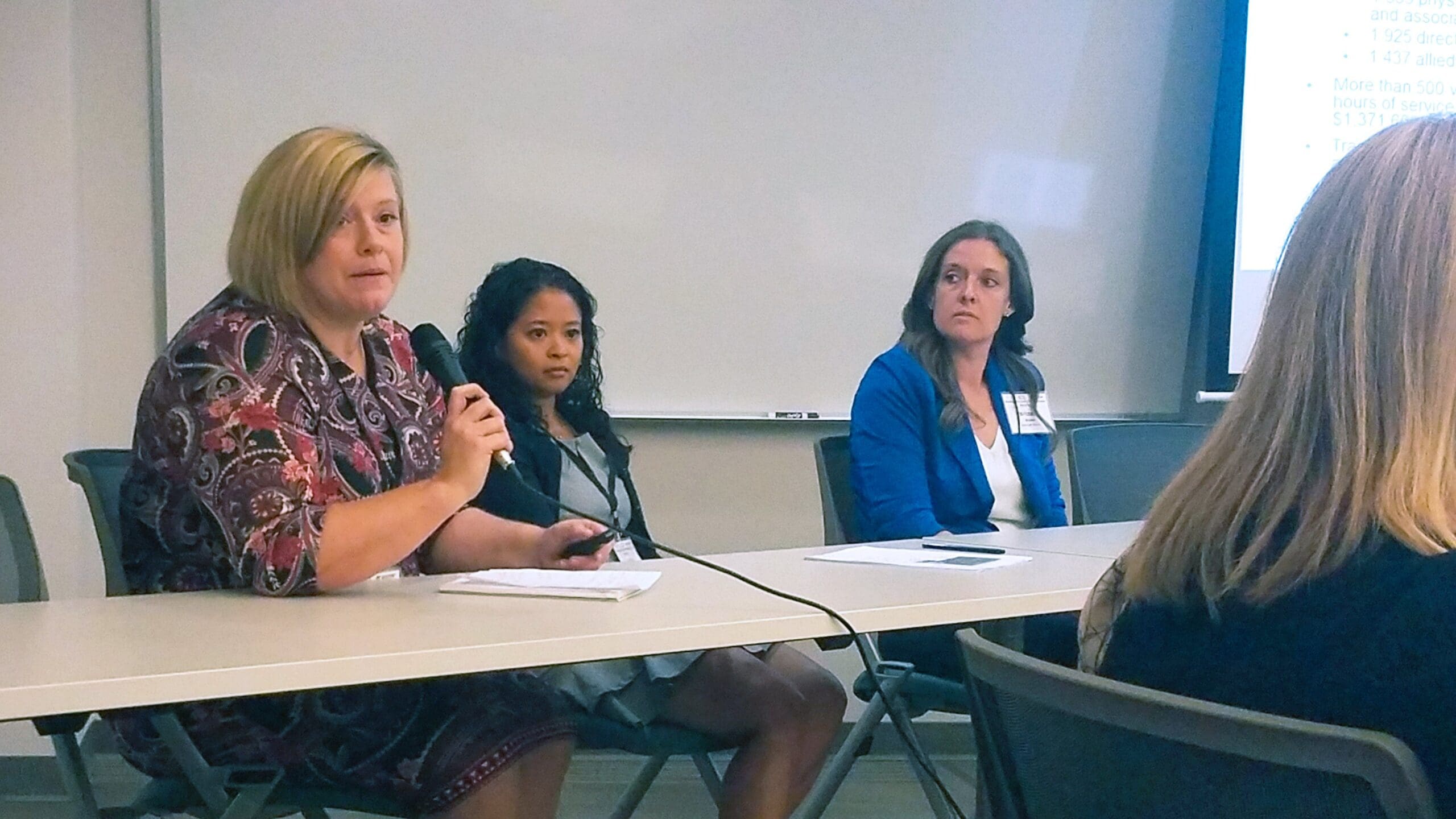
Navigating Apprenticeships in California
Presentation Deck
Resource: Employment Training Panel—Job-Skills Training for Workers in Healthcare and Apprenticeships
This panel discussed apprenticeship relationships, policies, and resources in California and the integration of United States Department of Labor (USDOL) and California Division of Apprenticeship (DAS) requirements. It also examined how partners can implement apprenticeships and their roles; the required program components; and potential funding and infrastructure to support apprenticeship programs.
- Hellan Roth Dowden, Chief Executive Officer, HR Dowden & Associates, Consultant SEIU 1000
- Robert Meyer, Director of Economic Development, Employment Training Panel
- Eric Rood, Chief, Division of Apprenticeship Standards, California Department of Industrial Relations
- Moderator: John Dunn, Assistant Secretary for Apprenticeship and Worker Training, California Labor and Workforce Development Agency
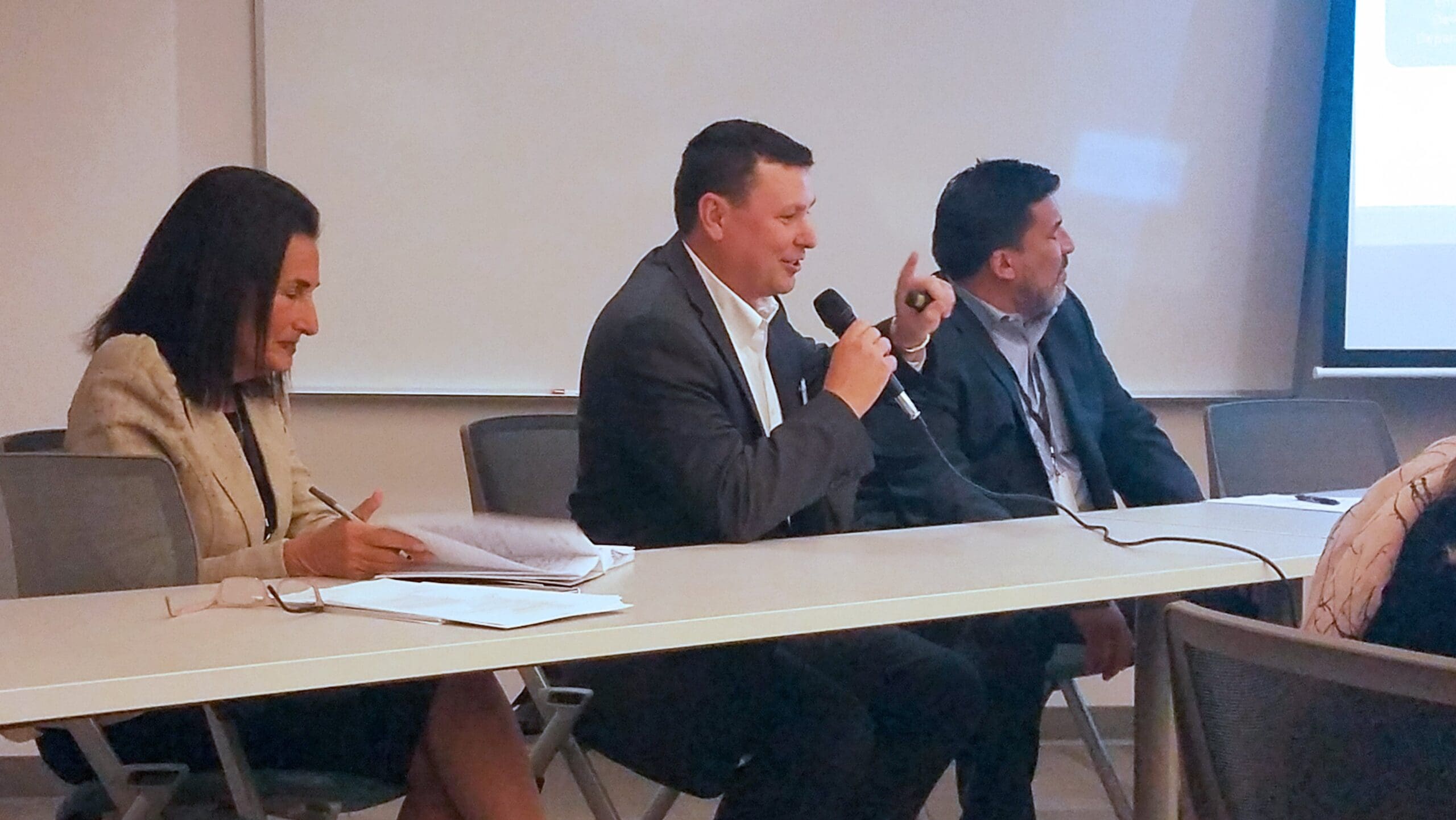
Role of Intermediaries in Apprenticeship
Presentation Deck
This panel reviewed the role of intermediaries in conducting outreach to employers, managing relationships with labor partners, coordinating among regional stakeholders, providing apprenticeship navigators, and offering technical assistance to establish and sustain programs.
- Daniel Bustillo, Executive Director, Healthcare Career Advancement Program (H-CAP)
- Gerald Ghazi, JFF Consultant, Co-Founder & President, Vermont HITEC
- Moderator: Fran Kennedy, Director, JFF
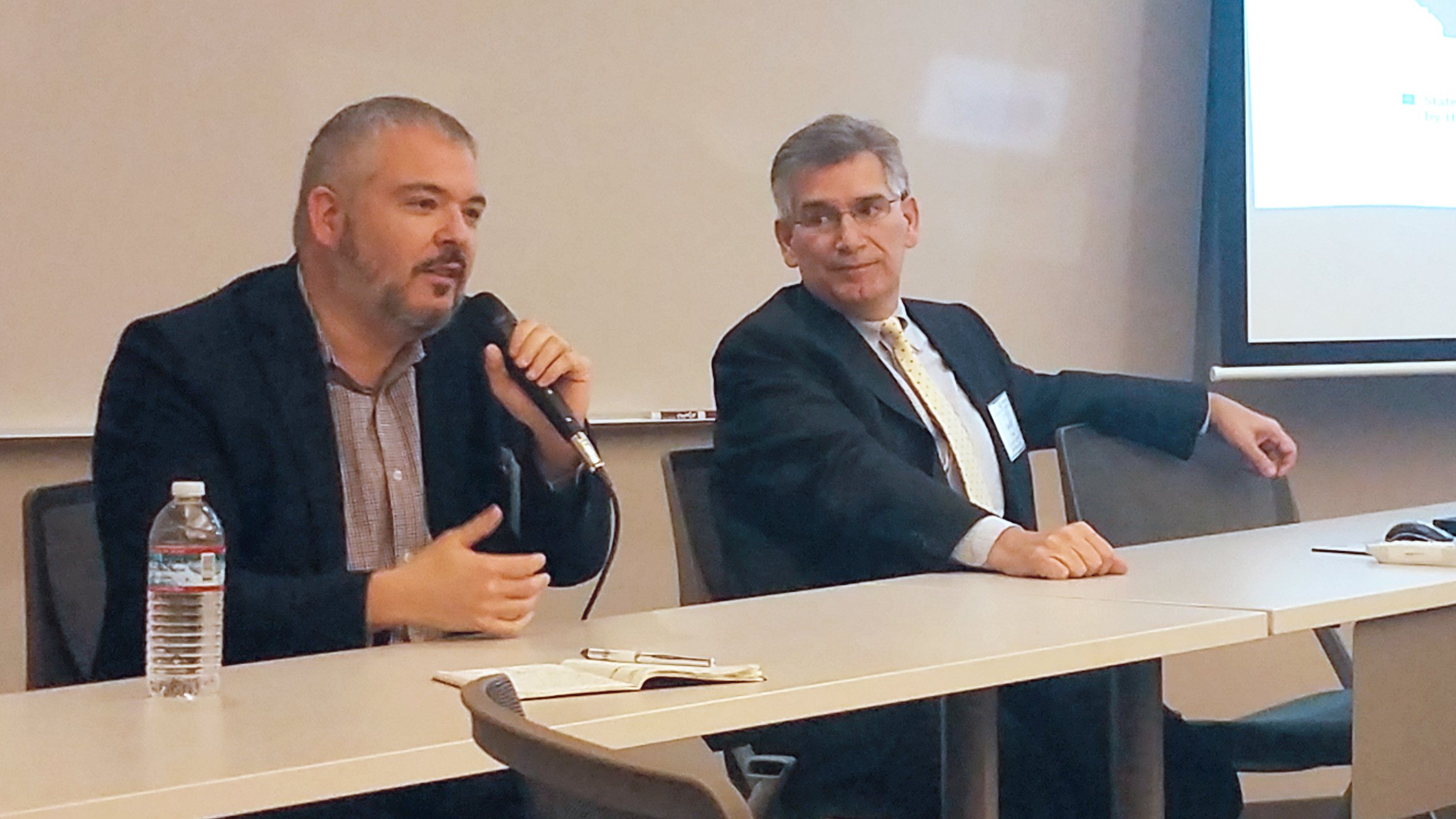
Consultancy Break-Out Sessions
This event included several action-oriented sessions where participants could ask questions of apprenticeship subject matter experts and receive guidance on next steps.
Navigating Apprenticeship in California
- Hellan Roth Dowden, Chief Executive Officer, HR Dowden & Associates, Consultant SEIU 1000
- John Dunn, Assistant Secretary for Apprenticeship and Worker Training, California Labor and Workforce Development Agency
- Eric Elberg, Staff Services Manager II, California Department of Industrial Relations, Division of Apprenticeship Standards
- Kelly Mackey, Staff Services Manager II, Northern California Apprenticeship Expansion Unit, California Department of Industrial Relations, Division of Apprenticeship Standards
- Robert Meyer, Director of Economic Development, Employment and Training Panel
- Eric Rood, Chief, Division of Apprenticeship Standards, California Department of Industrial Relations
Role of Intermediaries in Apprenticeship
- Stephen Baiter, Executive Director, City of Oakland Workforce Development Board
- Daniel Bustillo, Executive Director, Healthcare Career Advancement Program (H-CAP)
- Gerald Ghazi, JFF Consultant, Co-Founder & President, Vermont HITEC
- Jasmeen Karan, Associate Governmental Program Analyst/Consultant Trainee, California Department of Industrial Relations, Division of Apprenticeship Standards
- Fran Kennedy, Director, JFF
- Andrew Lee, Senior Apprenticeship Consultant, California Department of Industrial Relations, Division of Apprenticeship Standards
- Patricia Maguire, Associate Director, JFF
Voices of Industry
- Brittany Brown, Manager of Recruitment, Renown Health
- Sarah Currier, Director, Workforce Development, Dartmouth-Hitchcock, New Hampshire State Workforce Innovation Board
- Michelle Ednacot, CHAMPS Program Manager, Department of Community Health and Engagement, UCSF Benioff Children’s Hospital Oakland
- Larissa Estes, Manager, Community Partnerships, Department of Community Health and Engagement, UCSF Benioff Children’s Hospital Oakland
- Raul Galvan, Senior Apprenticeship Consultant, California Department of Industrial Relations, Division of Apprenticeship Standards
- Eric Seleznow, Senior Advisor, JFF